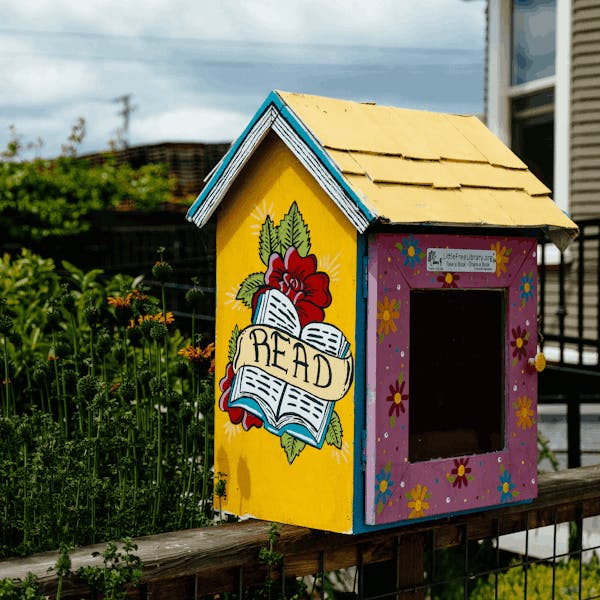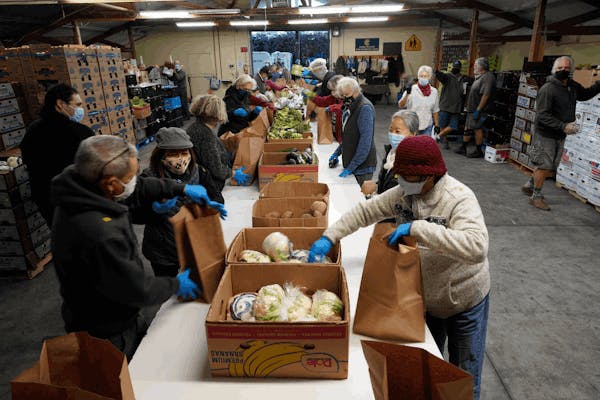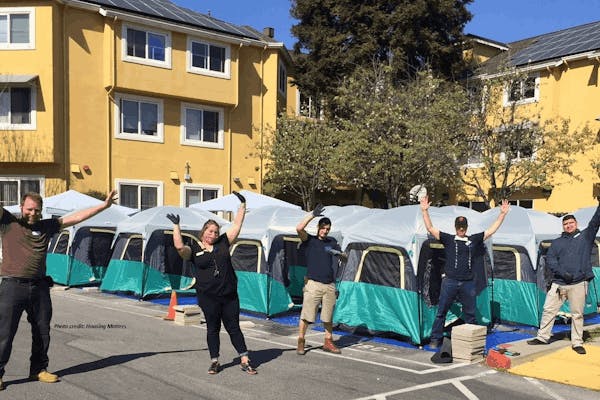
Responding to Crisis
A Global Struggle with Local Solutions
Reading the news right now makes it easy to focus on what’s going wrong. It doesn’t always serve us well. You’ve asked how national stories are playing out locally. We posed your questions to local leaders at the center of those issues. They shared what they’re seeing, and what’s helping, including solutions powered by your COVID-19 Local Response Fund gifts.
How will local businesses reopen safely?
We’ve launched an Economic Recovery Council (ERC) with business leaders and the County of Santa Cruz to identify smart practices and strategies that reduce risk. Their recommendations will inform steps the County and business owners will take to help the reopening succeed safely. The ERC is made up of leaders across sectors and supported by local scientific and public health subject matter experts.
How you’ve helped: Specific, practical, actionable guidance is a precursor to a safe reopening. Our roundtable of problem solvers is there to help industries, workers, and consumers get the information they need to make risk-reducing choices. Science guides the ERC’s work and leaders are asked to focus and prioritize reopening efforts to reduce the highest risk activity which is: sustained contact (greater than 2 minutes) with an infected person, that is unprotected by a mask/shield/barrier, closer than 6’ ft, and in enclosed spaces. We cannot eliminate transmission via touching surfaces, however, we have few recorded cases of transmission occurring through contact with a surface alone. Surfaces are now considered lower risk by the CDC. Leaders also keep in mind that the lowest risk activity for transmission is outdoor contact, at more than 6’ distance, that is protected by a mask/shield/barrier.
Should we be worried about the sudden rises in COVID-19 cases?
Yes, the increase in cases should make us ever more vigilant about having only brief, at a distance, protected contacts in well ventilated or outdoor spaces to reduce transmission risk. As we let down our guard, we will see increased cases. More testing is showing us that the virus is here. It makes sense that we’ll see an increase in cases now that our COVID-19 testing has expanded. We’ve significantly increased our testing county wide and capacity will continue to grow daily. Increased testing,combined with contact tracing and treatment will contain the virus and get our county on the road to recovery.
How you’ve helped: Funding from some forward-thinking Community Foundation donors has enabled Margaret Lapiz, our energetic new Director for Community Recovery for SAVE Lives Santa Cruz County, to get right to work speeding up our route to a new, safer status quo.
Is domestic violence on the rise?
Tragically, domestic violence tends to increase after disasters. Monarch Services and Walnut Avenue Family & Women’s Center have seen a significant increase in crisis calls since the shelter in place order took effect. Abuse is compounded by increased time spent isolated with partners, creating opportunities for further control and abuse. Additionally, mandatory social isolation has fractured support networks of family or friends that domestic violence survivors may typically rely on making it more difficult for them to seek help or escape violence. Many domestic violence survivors have faced job loss, reduced work hours, and additional stress. Many are in need of safe housing, food, rental and household financial assistance.
How you’ve helped: $75,000 in COVID relief funds are at work as these trusted agencies protect and support the wellbeing and safe shelter of survivors of domestic violence countywide.
How is our agricultural industry faring, including farmworkers?
In general, local farmers have seen strong sales, with fresh produce being snapped up by consumers. Layoffs and furloughs in other industries expanded the agricultural labor pool. Some farmworkers have received fewer work hours. Deemed essential labor, some have still seen their ability to make rent and put food on the table dwindle. In the past few months, 60 families from the Center for Farmworker Families needed financial support for food and rent, 70 will need support in June.
How you’ve helped: $110,000 in COVID relief funds are helping provide rental and household financial assistance specifically to farmworkers. $25,000 is helping the Santa Cruz County Farm Bureau lead a coordinated effort with local government, health care providers, and the agricultural community to support a safe and healthy farming season.
Who's impacted by the "digital divide"?
Ready access to computers and the internet is now essential for learning, but not everyone has it. When schools closed in March hundreds of households didn't have internet access to support their child’s distance learning. The County Office of Education, Cruz One, and Cruzio teamed up to help low-income students gain access to adequate broadband and connected devices. Any families still in need of internet access should reach out to their school district for assistance. Many youth experiencing homelessness and transition age foster youth lost their jobs and access to the internet to apply for unemployment, housing, or jobs. As in-person services went online or by phone, many youth got disconnected from those they rely on for work, health care, and other resources.
How you’ve helped: $18,200 in COVID relief funds helped ensure low-income students gain access to adequate broadband for distance learning. $5,000 helped Encompass Community Services provide phones for youth to stay connected to their case managers, maintain social connection for their mental health, and apply for jobs, housing, and unemployment.
How are isolated seniors connecting with resources and social experiences?
Prior to COVID, 54% of seniors in Santa Cruz County lived alone or experienced loneliness. Social isolation is not new to many older adults but it's worsened by the pandemic. It's forced in-person senior engagement and communal dining programs to close. Many older adults are afraid to leave their homes but are in need of meal delivery and food distribution. Seniors are also impacted by the digital divide, now more essential for communication than ever. Many remain without the equipment, internet access, and technology training to access resources, information, and the important social connection that alleviates loneliness.
How you’ve helped: $60,000 in COVID relief funds has supported food delivery and distribution for an increasing number of isolated seniors through Grey Bears. $10,000 helped Meals on Wheels add freezer storage to expand service and additional $30,000 helped Community Bridges change its senior services from group to home delivered services and meals. $5,000 helped Senior Network Services upgrade technology to help isolated seniors get the information and assistance they need. $10,000 in equipment and internet access supported Seniors Council’s new initiative to make sure isolated seniors don’t have to go it alone. Our funds served as a match, triggering hundreds of thousands in state funding through the Great Plates program. Now, 350 new seniors can get meals delivered and local food businesses can get cooking again.
How is the pandemic impacting immigrant families?
Undocumented individuals and mixed immigration status families who struggled to make ends meet before the pandemic are now are facing even more dire circumstances. Many workers have lost their jobs, had their hours significantly reduced, or are unable to work while also caring for their children at home. Too often, families are living in overcrowded housing and not able to safely quarantine. Although they still pay taxes, undocumented people are excluded from federal and state funded safety net programs. Disaster Relief Assistance for Immigrants through the State of California is helping some local families with $500. But thousands more in our county are in need of food, rental assistance, and household items.
How you’ve helped: $45,000 supported UndocuFund Monterey Bay to provide direct cash assistance to undocumented and immigrant workers impacted. Over $540,000 provided rental, and household financial assistance to those left out of other relief opportunities, including undocumented and mixed immigration status families. Trusted partners in that work include Catholic Charities, Center for Farmworker Families, Community Action Board, Community Bridges, Families in Transition, Cradle to Career, and Senderos.


